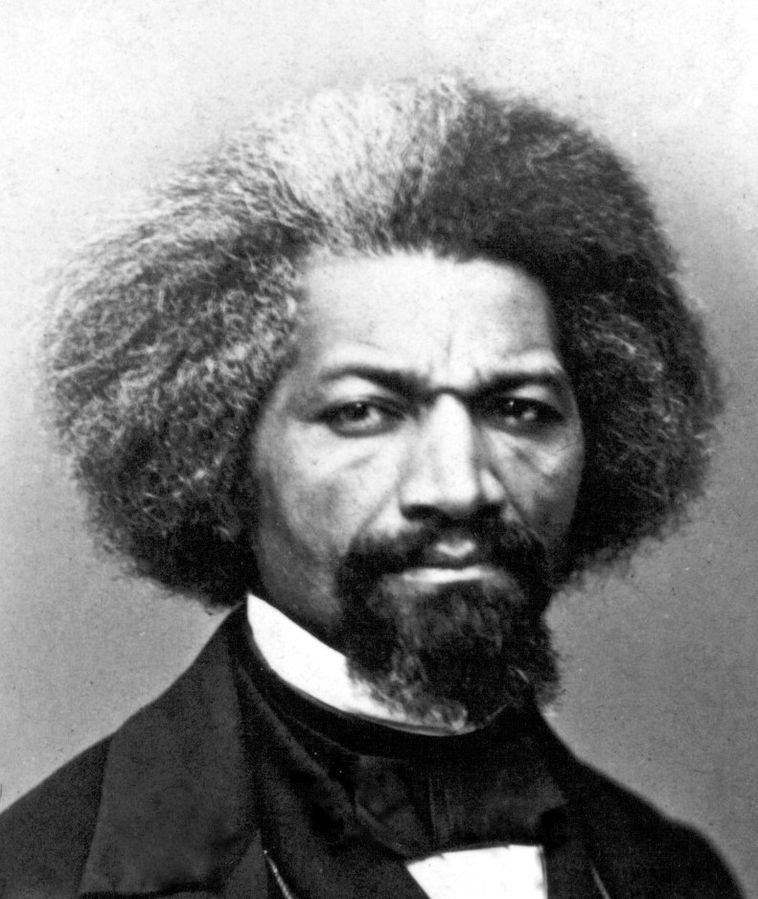 https://commons.wikimedia.orgnot listed [Public domain]Frederick Douglass knew firsthand the suffering and hopelessness of what it meant to be a slave in America. He was a slave, born to a mother he never knew and rarely saw. He was a man who witnessed and bore the countless beatings, humiliation, and oppression that marked the existence of African-Americans in the 1800s. It was a reality that he vowed to overcome, not just for himself, but for all the black men and women who awoke each morning to a life entirely not their own--a life without freedom.
https://commons.wikimedia.orgnot listed [Public domain]Frederick Douglass knew firsthand the suffering and hopelessness of what it meant to be a slave in America. He was a slave, born to a mother he never knew and rarely saw. He was a man who witnessed and bore the countless beatings, humiliation, and oppression that marked the existence of African-Americans in the 1800s. It was a reality that he vowed to overcome, not just for himself, but for all the black men and women who awoke each morning to a life entirely not their own--a life without freedom.
Early in his life, Douglass learned to read the alphabet--a skill that made his master furious. Judging by his master's reaction, he concluded that learning how to read and write were his pathway to freedom. Douglass continued to master reading on his own or by using the poor white children he befriended as teachers. He read books and newspapers--anything he could--but he had to do so in secret in order to avoid the wrath of his owners. With the small amount of money that he earned doing errands, he bought a copy of The Columbian Orator, a collection of speeches and essays dealing with liberty, democracy, and courage. He began to learn about the abolitionists and to dream of emancipation. Soon he began subscribing to The Liberator, a newspaper edited by William Garrison, leader of the American Anti-Slavery Society. “The paper became my meat and drink,” wrote Douglass. “My soul was set on fire.”
Soon Douglass, a gifted orator, was speaking out regularly against slavery. He gave lectures and became an advisor to President Lincoln during the Civil War. His relationship with Lincoln helped make emancipation an important cause of the war, and he fought to allow African-American troops in the Union Army and thus gain freedom. With the close of the Civil War, and ratification of the Thirteenth Amendment to the U.S. Constitution in 1865, slavery was officially abolished in all areas of the United States. Douglass’ job, however, was far from done. African-Americans desperately needed someone to be their advocate, and Douglass knew that, despite freedom, many southern blacks still toiled under conditions as oppressive as those existing before the war. Although Douglass continued to face resistance and prejudice when dealing with government leaders, he helped blacks receive full citizenship through the Civil Rights Bill and to obtain much needed medical and educational services through the Freedom’s Bureau Bill.
Frederick Douglass was and is a true hero, not just to African-Americans, but to anyone who enjoys freedom and equal access to the rights of the U.S. Constitution. Douglass was born in an era when African-Americans were given no voice, but he struggled nonetheless to be heard. His life is a testament to courage and persistence as he fought tirelessly for the freedom of millions of men and women. He is an inspiration to me and to anyone who values liberty and justice for all people.
Page created on 2/7/2010 12:00:00 AM
Last edited 6/19/2020 5:50:12 AM
Douglass, Frederick. Narrative of the Life of Frederick Douglass (excerpt) from The American Tradition in Literature. NY, New York: McGraw-Hill, 1956-2002. Vol 1, pgs 1822-1834
Thomas, Sandra. "Frederick Douglass "Abolitionist, Editor"." [Online] Available http://www.history.rochester.edu/class/douglass/home.html.
